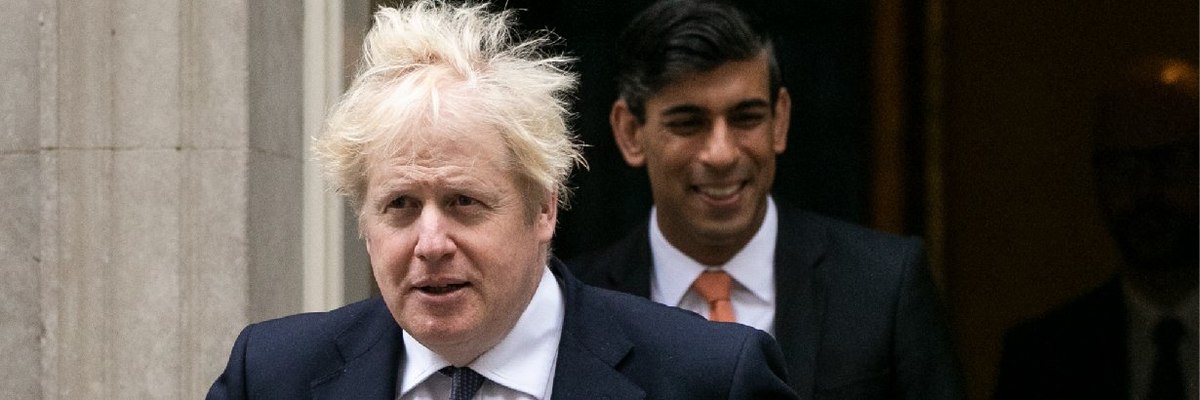People from Black, Asian and Minority Ethnic adults are split on whether a BAME Prime Minister would make a difference to the lives of ethnic minorities in Britain
As of 2020, no person from a racial minority background has led a major political party in the UK. Nevertheless, racial representation at the very top of politics is improving. The current Chancellor of the Exchequer – Rishi Sunak, of Indian heritage – is seen by many as favourite to succeed Boris Johnson as Tory leader. His predecessor, Sajid Javid, of Pakistani descent, had been the first person from a racial minority to hold that post, and likewise that of Home Secretary. His own successor at the Home Office – Priti Patel, of Indian lineage – is the first woman from a minority racial group to hold one of the four Great Offices of State.
That said, new YouGov research finds that Britons from ethnic minority backgrounds place more importance on a political leader’s record (82%) and professional experience (75%) far more than their race (20%). However, Black (25%) and Pakistani (22%) respondents are more likely to place significance on race than other ethnic groups.
An individual’s broader background and upbringing is more divisive in terms of importance: 47% consider it important compared to 45% who don’t.
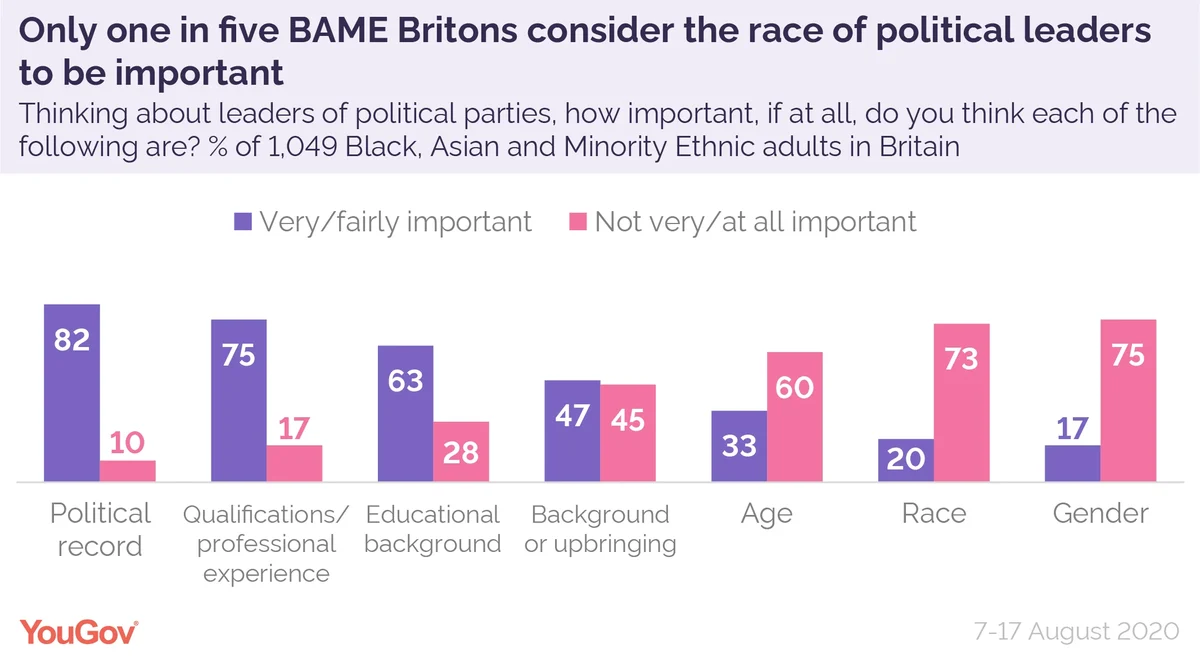
While little emphasis is placed on the ethnicity of the nation’s leaders, in the event that Britain did elect an ethnic minority Prime Minister, a third (36%) think they would make things better for ethnic minorities in the country. This figure rises to nearly half among Britons of Indian ancestry (46%), with Black, Pakistani and Chinese Britons about as likely as the BAME average to think so (36-38%).
Nevertheless, just as many BAME Britons (35%) do not think it will make a real difference, rising to half among people of mixed ethnicity (52%).
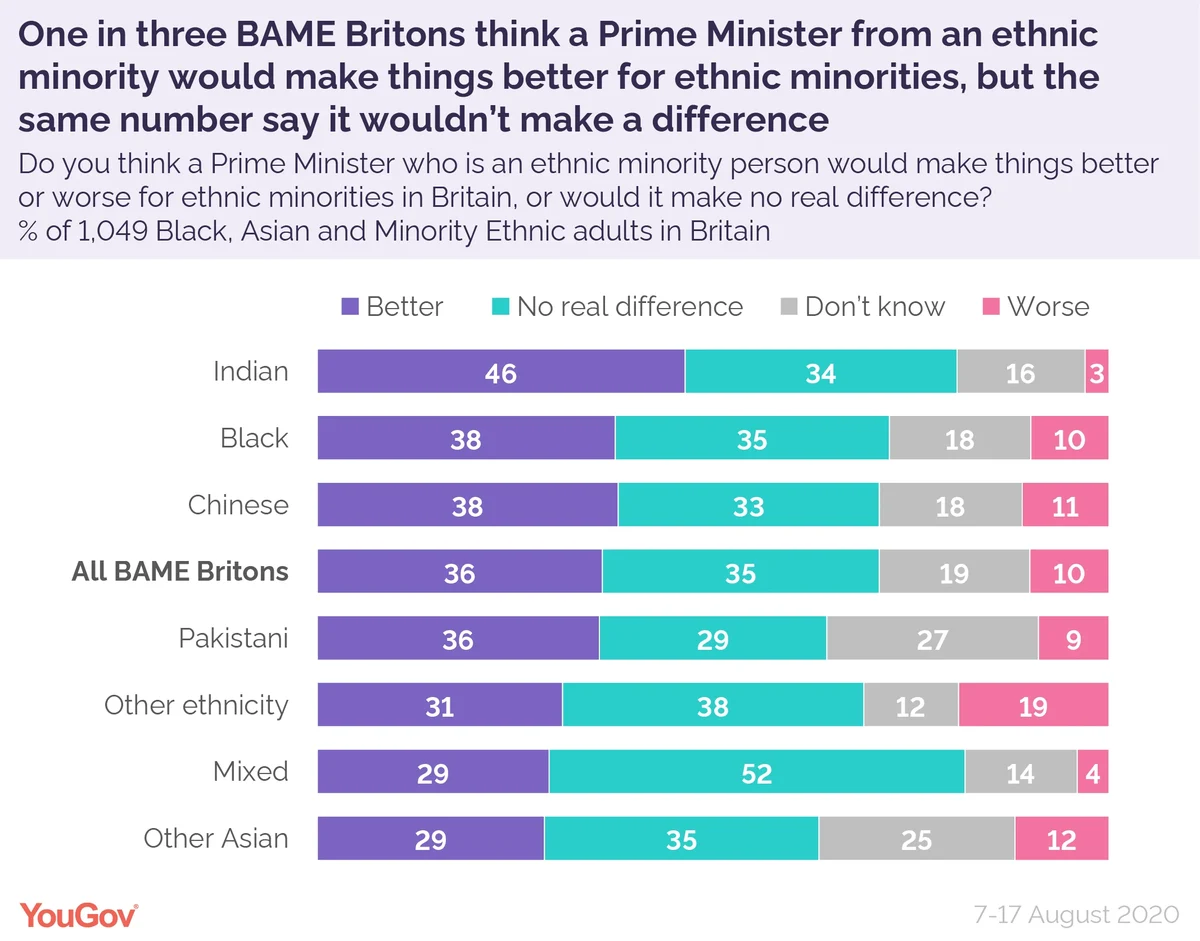
Rishi Sunak and Keir Starmer are the most popular political figures among BAME Britons
Half (51%) hold favourable views of Rishi Sunak, making him the most popular figure on the list of eight top political figures we asked about. Priti Patel fares less well, with only 20% holding a favourable view of her, compared to 63% who hold an unfavourable view.
The Prime Minister himself is similarly unpopular, with only 27% holding Boris Johnson in high esteem, compared to 64% who hold a negative opinion of him. His Labour rival, Keir Starmer, is much more popular, scoring a rating of 50% favourable vs 21% unfavourable.
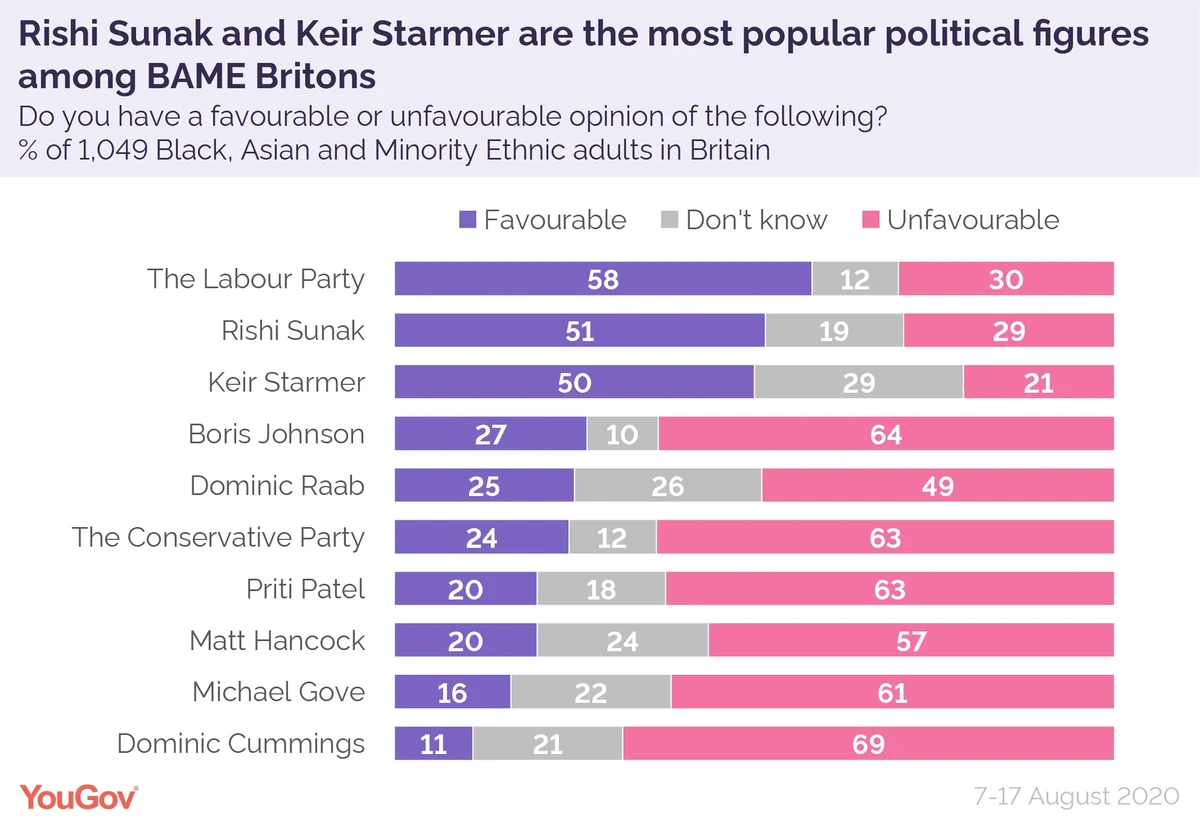
Of the two party leaders, Starmer is the more trusted on racial equality, at 36%. Johnson, who as a journalist referred to Black Africans as “piccaninnies” with “watermelon smiles”, and who as foreign secretary described Muslim women wearing burkas as “looking like letterboxes”, is backed by only 13%. It is notable, however, that half of BAME Britons either are unsure (20%) or have no preference (30%).
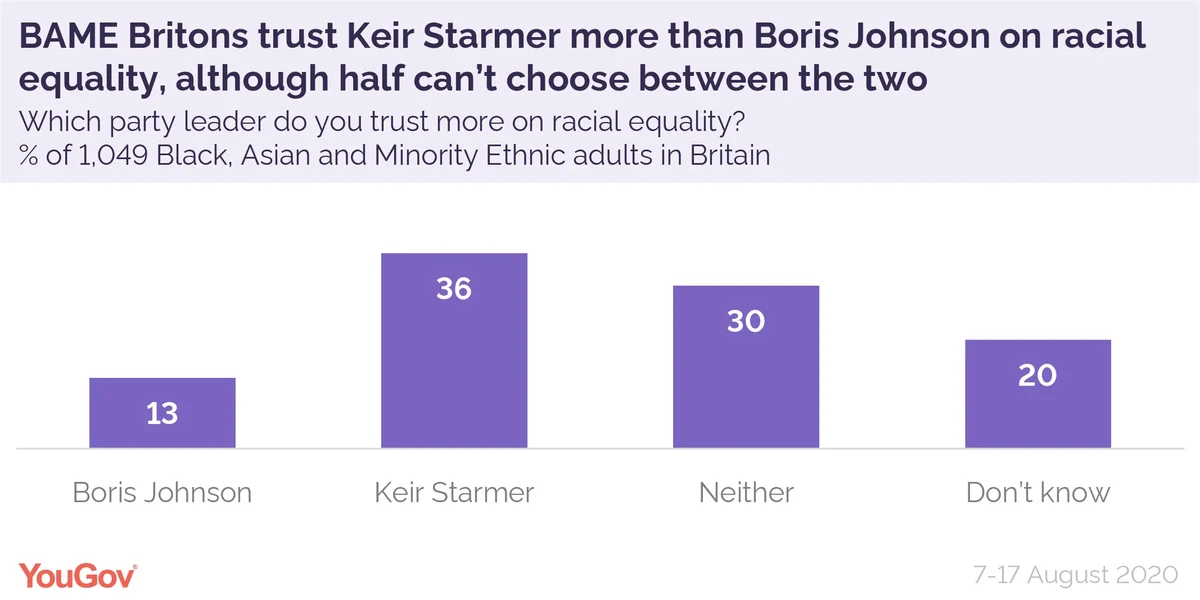
BAME Britons are similarly unable to point to a Prime Minister they can comfortably say has done more than others to improve life for ethnic minorities in Briton. Fully 54% responded “don’t know” to this question.
There is, however, a clear winner among those listed. One in five BAME Britons (21%) believe Tony Blair has done the most to improve life for ethnic minorities in the last fifty years – far ahead of second-placed Gordon Brown (6%).
Age may be influential here, as 12% of over 65s think Harold Wilson – who introduced legislation addressing race relations and racial discrimination in the late 1960s – played the most pivotal role (16% of this age group still chose Blair, however).
Data from this study by Renie Anjeh originally appeared in articles in The Times (1 / 2)
